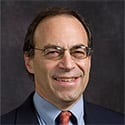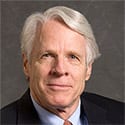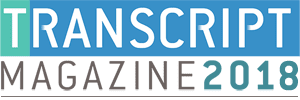Berkeley Law professors are internationally recognized experts in a rich array of specialties. Here is just a sampling of their far-reaching scholarship over the past year.
Eye on China

When Rachel Stern is in China, “it feels like I’m in the center of the universe.” She calls the rise of China “the political story of our lifetime, with huge ripple effects in the United States and across the world.” That ascension is strong fuel for a fast-rising scholar whose research has vaulted her to the forefront of studying China’s legal system.
Her latest honor, a Hellman Award, supports the research of promising UC Berkeley junior faculty. Stern is examining how judicial transparency in China is changing that nation’s practice of law. Case decisions had long been available only to the lawyers and parties involved, but the government in 2014 declared that all rulings must be published online. Stern presented her early findings at a recent conference in Nanjing, China.
Managing Refugee Crises

Katerina Linos argues that host governments and aid organizations can inadvertently undermine their ability to manage refugee crises. Three recurring culprits are frequently changing policies, limiting information available about the asylum application process, and implementing arbitrary asylum policies.
Her paper, written with two co-authors, draws on 25 interviews with aid workers and government officials, more than 80 discussions with migrants and refugees in Greece, and rumors systematically collected by aid organizations. Linos shows how the resulting information vacuums lead to troubling misperceptions. These prompt refugees to seek answers from unofficial sources (including smugglers), often leading them to not fully exercise their legal rights.
Taxing Global Profits

More countries are considering a destination-based cash flow tax on multinational companies. That’s a tax based on where goods end up rather than where they are produced. In a paper evaluating the tax against five criteria—economic efficiency, robustness to avoidance and evasion, ease of administration, fairness, and stability—Alan Auerbach and his co-authors explain how the tax might work, analyze its likely effects, and note issues that would arise with implementation.
Auerbach looks closely at how such a tax would be applied to the financial sector. His research group intends to produce a book that reviews ways in which jurisdictions might tax a share of the profit of multinational companies, including the existing system and well-known alternatives.
Bankruptcy Code Breaker

A law review article by Abbye Atkinson examines the issue of categorically non-dischargeable debts in the Bankruptcy Code. These debts are excepted from discharge ostensibly because they indicate that (1) the debt was incurred through misconduct; (2) a vital public policy requires the debt to be excepted from discharge; or (3) the discharging of certain state-imposed debts raises federalism concerns.
Atkinson chides these analytical prisms, arguing that they do little to help explain why some debts are treated as non-dischargeable while others that seem to implicate the same concerns are not. She says this arbitrary line drawing has negative implications for disenfranchised communities in which categorically non-dischargeable debts may be concentrated.
Analyzing Antitrust

Daniel Rubinfeld won the American Antitrust Institute’s annual award for best antitrust and platform markets article. His paper with Michal Gal addresses the recent growth of free online goods and services, problems caused by their hidden costs, and how antitrust policy and regulatory tools can best manage them.
Rubinfeld and Gal also won a 2017 Antitrust Writing Award from Concurrences, a peer-reviewed journal dedicated to national and European Union competition laws, for their paper on barriers to big data. The authors examine the main limitations on accessing big data and describe the characteristics of its markets and their competitive effects. They find that big data’s unique characteristics should play a key role in analyzing competition—and in evaluating social welfare.
Medal-Worthy Work

Robert Cooter won the 2017 Ronald H. Coase Medal for advancing economic understanding of law and related areas of public policy and regulation. Bestowed every other year by the American Law and Economics Association, the award recognizes major contributions to the field, which Cooter helped pioneer.
His recent work examines the value of a statistical life (VSL), which balances the risk of death and the costs of limiting that risk. Assessing community and market VSLs, Cooter endorses the former to help measure damages in tort law and aid regulatory cost-benefit analyses. He says that community VSLs offer a valid measure of life’s implicit value because they derive from social norms, which embody the collective preferences and ideals of communities as refined over time.
Striking Power

Written with Jeremy Rabkin, John Yoo’s latest book describes threats to international peace and security that include the proliferation of weapons of mass destructions (WMDs), rogue nations, and international terrorism. In Striking Power: How Cyber, Robots, and Space Weapons Change the Rules for War, they argue that the U.S. should respond to these challenges by embracing new military technologies.
Yoo says these weapons can provide more precise, less destructive means to curb the spread of WMDs, clamp down on terrorism, or end humanitarian disasters. He argues that efforts to constrain new military technologies are not only doomed but also dangerous, and that these new weapons can send a strong message without causing death or severe personal injury.
Free Labor Speech

Recent First Amendment rulings have been unkind to labor in the U.S. Supreme Court, save for the expanded right of union-represented employees to refuse to pay union dues. This has not always been so historically, however, and Catherine Fisk ’86 argues that the labor movement’s future depends on the right to engage in robust protest—and on lawyers cultivating that right.
Fisk says social movements can exist only with a strong commitment to free speech, and that real power for workers hinges on labor’s capacity to be such a movement. Her paper calls for labor lawyers to raise rights awareness of the First Amendment’s free-speech clause, even in the face of courtroom setbacks, to build more legal consciousness and conviction among workers.
Science, Sex, and Gender

The surging transgender rights movement challenges cornerstone legal presumptions about science, sex, and gender. Sonia Katyal confronts how the law should respond amid the erosion of binary presumptions about male and female identity. Her article offers a new way to conceive of the relationship between sex and gender, through a parallel affiliation between identity, property, and intellectual property.
Katyal argues that sex is to gender as property is to intellectual property. Instead of thinking of sex as a construct of biology alone, she says we can re-conceptualize it along the lines of tangible property—bordered, seemingly fixed, and rivalrous. By contrast, she says gender is more akin to intellectual property—malleable, unfixed, and nonrivalrous.
Cited by Sotomayor

U.S. Supreme Court Justice Sonia Sotomayor cited the work of Andrew Bradt in a 2017 dissenting opinion. Bradt and three co-authors submitted an amicus brief in a case involving 86 California residents and 592 non-resident plaintiffs who sued Bristol-Myers Squibb over alleged injuries from the drug Plavix.
Bristol-Myers Squibb sold millions of Plavix pills in California, but argued that the state court lacked jurisdiction to preside over the nonresidents’ claims because their alleged injuries were not caused by the company’s state contacts. Bradt’s brief urged the court to reject a strict causation test, arguing it would jeopardize established expectations about jurisdiction in simple and complex cases and betray longstanding court precedent.
The court agreed with Bristol-Myers Squibb’s jurisdiction argument, but did not adopt the company’s proposed causation rule.
Solving a Pesky Patent Puzzle

If two federal appeals courts decide the same issue differently, the U.S. Supreme Court is more likely to rule on it. But, as Tejas Narechania points out in a recent paper, almost all patent case appeals land in the Court of Appeals for the Federal Circuit. How, then, does the Supreme Court determine whether to grant certiorari in a patent case?
Narechania says the high court looks for a different type of split in making this decision: whether two fields of law conflict over the issue in question. He notes that legal universality—consistency across fields of law—is an important but largely unstated priority in certiorari decisions for patent cases, and that the court should better explain when and why such “field splits” merit review.
Counterrevolution Roots

A recent book co-authored by Sean Farhang examines responses to the rights revolution that occurred in the U.S. during the 1960s and 1970s. In Rights and Retrenchment: The Counterrevolution Against Federal Litigation, Farhang and Stephen Burbank use archival evidence and data to identify origins of the counterrevolution against private enforcement of federal law in the first Reagan administration.
In doing so, the authors measure the counterrevolution’s trajectory and evaluate its success in elected branches, court rulemaking, and the Supreme Court. They find that although the counterrevolution largely failed in more democratic lawmaking sites, an increasingly conservative, ideologically polarized Supreme Court has made federal law less friendly to enforcing rights through lawsuits.
Informal Dispute Resolution

In 1970, fewer than a dozen U.S. courts offered mediation, negotiation, or other forms of informal dispute resolution. Over the next three decades, these alternatives grew to become staples of American adjudication. Calvin Morrill confronts the factors driving this dramatic expansion in a paper that uses the historical case of U.S. alternative dispute resolution.
In doing so, he illuminates the theory of interstitial emergence, which explores how practices from overlapping fields can develop new frameworks, and the reasons for both its evolution and relevance. Morrill also dissects the integration between institutional analysis in organizational and legal sociology, using it to consider potential alternative options in the U.S. medical field.
The Dirt on Data Collection

Data collection programs, often launched in the name of national security, are secretive and largely immune from oversight—posing serious threats to personal privacy. A new book co-authored by James Dempsey, Bulk Collection: Systematic Government Access to Private Sector Data, explores national practices and laws regarding such access to personal information held by private companies.
The book contains 12 country reports that assess national surveillance laws, evolving international law and human rights principles related to government surveillance, and oversight mechanisms. Dempsey proposes rules for government access to customer data from telecommunication providers and private companies, and advises how companies should respond to such demands.
